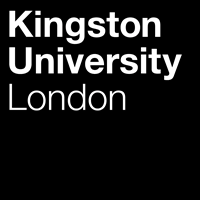Unhealthy dietary choice is one of the major causes of obesity, cardiovascular disease (CVD), and Type 2 diabetes (T2D). Despite evidence suggesting that a healthy diet reduces the risk of obesity, CVD and T2D, the impulse to consume highly palatable foods is difficult to be inhibited. This is complicated in the current environment where highly palatable foods are plentiful and food related cues (e.g., food related pictures and ads) are ubiquitous. To that end, cognitive control and self-regulation, two prefrontal-mediated cognitive processes that regulate our behaviors, are essential to reduce our automatic urges to consume highly palatable and unhealthy foods and decrease the likelihood of over-eating.
Research has shown that lifestyle factors, such as physical activity, may change eating behavior and control of eating. For example, earlier studies by Lowe and colleagues indicated that exercise decreased food intake and such exercise effects were mediated by improved cognitive control following exercise. Recent studies that utilized neuroimaging measures, such as EEG, further demonstrated that exercise may modulate specific EEG markers that support better food related inhibitory control. These preliminary data suggest that a healthier lifestyle, such as being more physical active, may be associated with healthier eating behavior and better control over eating, and better cognitive control and its associated EEG markers might mediate this association.
Based on the above, this PhD project will try to expand our understanding of how lifestyle factors affect eating behavior and appetite, as well as explore the mediating role of self-regulation and cognitive control to the complex associations. You will be using neuroelectric (e.g., EEG) and psychobiological measures (e.g., HRV) to evaluate cognitive control and self-regulation, will be using different computer-based tasks to measure cognitive control and food preference and rewards, and will be using dietary assessment (i.e., ad libitum meals) to evaluate actual food intake of participants. In addition, depending on your topics, you would be learning how to implement different exercise interventions, how to use wearable device to assess physical activity, and how to perform fitness test. By measuring EEG, HRV, and appetite, we can begin to establish the complex and multi-dimensional nature of eating behavior and their associations with different lifestyle factors. If funding is available, you might also have opportunity to collect, process, and analyze biomarkers from blood or salivary samples. As an example of research under this project, please see our ongoing study via this link: https://sites.google.com/view/breadlab/research/bear?authuser=0
The research will be conducted in a multi-disciplinary team across the Department of Psychology and Department of Applied and Human Sciences at Kingston University, as well as potential external collaborators (e.g., University of Leeds). The exact program of work will be established between the candidate and the supervisor following selection.
Candidates should have a master’s degree in a relevant area to the project, such as experimental or biological psychology, cognitive neuroscience, behavioral science, and/or exercise and sport science (exercise and sport nutrition desirable). Applicants will have excellent practical laboratory skills and interpersonal skills for working with research volunteers and colleagues across different research disciplines and departments in a research setting. Evidence of research skills and laboratory experience in EEG is required. Also, experience in writing codes and scripts in different data processing environments, such as MATLAB, R, Python, is also strongly desirable.
Prospective students should email Dr. Hsieh ([Email Address Removed]) with your CV and include a personal statement outlining your research experience, interests, and goals (failure to do so will decrease the likelihood to receive a response from Dr Hsieh). Such communication will clarify issues regarding research directions, funding, and other issues that you might have questions about.

 Continue with Facebook
Continue with Facebook



